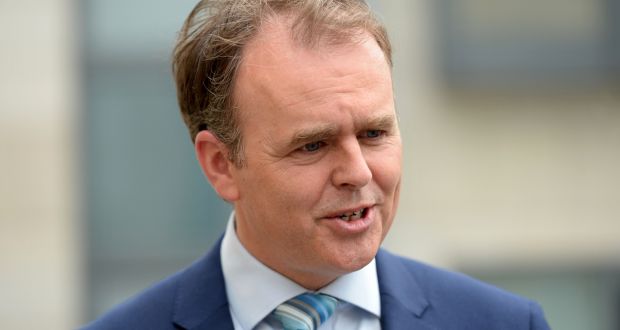It was with relatively little fanfare that Richard Bruton’s tenure as Minister for Education came to a close, with Bruton shifted to the Department of Communications by Taoiseach Leo Varadkar and landed with the unenviable task of salvaging the mess that the national broadband plan has become.
In his place arrives former government Chief Whip Joe McHugh. Once a teacher, McHugh has had a relatively low profile when it comes to questions of education and, in a move reminiscent of an episode of The Thick of It, was previously best known for being appointed as the Minister for the Gaeltacht that spoke no Irish. In a week in which higher education funding was paid no more than superficial attention in the budget, McHugh’s appointment as someone with a minimal track record on higher education issues is another disappointment to the sector.
Furthermore, despite his inexperience, there is no prospect of a honeymoon period for McHugh to grow into his job as he takes charge of a higher education sector that has been crippled by chronic underfunding. He inherits a department so plagued with problems that Bruton must be pleased to be rid of it. As the issues facing third-level education continue to build up, McHugh is faced with the difficult job of trying to arrest the gradual decline of the higher education sector on a shoestring budget.
The most notable challenge facing the sector is the ongoing underfunding of third-level institutions. In 2016, the publication of the Cassells report coincided almost perfectly with Bruton’s appointment. Presenting a number of options to the government, including a universally unpopular loan system, the report principally called for an increased investment of €1.3 billion a year by 2030, necessitating funding of €600 million a year by 2021.
In a week in which higher education funding was paid no more than superficial attention in the budget, McHugh’s appointment as someone with a minimal track record on higher education issues is another disappointment to the sector
In the 27 months since, the report has slowly gathered dust in the basement, long forgotten about by those who had once eagerly awaited its publication. Despite calls in recent months from Fiona O’Loughlin – a Fianna Fáil TD and the Chair of the Oireachtas Education and Skills Committee – for the government to take firmer action on the crisis, these requests have thus far been met with stony silence by Bruton’s department.
In the absence of any substantive movement on the report, or any sign of an intention on the part of the government to perform an in-depth examination of its findings, the sector has remained underfunded, with repeated slides in university rankings the most painful symptom of this dearth of resources. This week’s budget announcement of the investment of just €300 million into the sector, well shy of the €600 million recommended by the Cassells report, shows that the issue of third-level funding remains little more than an afterthought for this government.
While the issue of funding has remained of cursory interest to the government, the drastic underfunding of the higher education sector has started to have a serious impact on the performance of Irish universities. A gradual malaise in the rankings has now gathered pace and not a single Irish university currently features in the top 100 of either the Times Higher Education or QS University rankings. Trinity’s performance, as the state’s pre-eminent university, is cause for particular concern as it has dramatically fallen from 76th place in the Times Higher Education rankings in 2011 to 120th place this year.
The fall is particularly alarming as, in recent years, one of the ways Irish universities have supplemented their income is by targeting international students, whose fees have helped make up much of the shortfall caused by the dearth of public funding. However, McHugh must be acutely aware that this revenue stream is precarious, and the stop-gap solution is dependent on Irish universities retaining the ability to attract international students. Repeated falls in the rankings undoubtedly blunts our competitiveness.
In the absence of any substantive movement on the report, the sector has remained underfunded, with repeated slides in university rankings the most painful symptom of this dearth of resources
In addition to the consistent problems surrounding third-level institutions is the increasingly problematic challenge of university autonomy. Under measures introduced during austerity, the hiring of new staff is heavily restricted, and the wages for academic staff have been strictly controlled. The state’s seven universities have long called for increased autonomy and have blamed “grinding levels of state control” for their poor performances in ranking over the past number of years.
In his first few months in the job, then, McHugh faces the somewhat baffling prospect of navigating the colleges’ pleas for increased funding on the one hand, while balancing their growing demands for increased autonomy.
McHugh takes over a department facing a myriad of complex institutional problems, and despite Mary Mitchell O’Connor being delegated responsibility for higher education, she only has so much influence and a stronger hand is needed. Therefore, McHugh faces a greater challenge than simply tackling the issues that have been repeatedly outlined in this paper and others for years. His first task must be breathing new life into a department that has suffered from inertia and reigniting some semblance of interest in the problems facing the higher education system among his colleagues in cabinet. Only then can the state properly tackle the host of problems facing third-level institutions.







